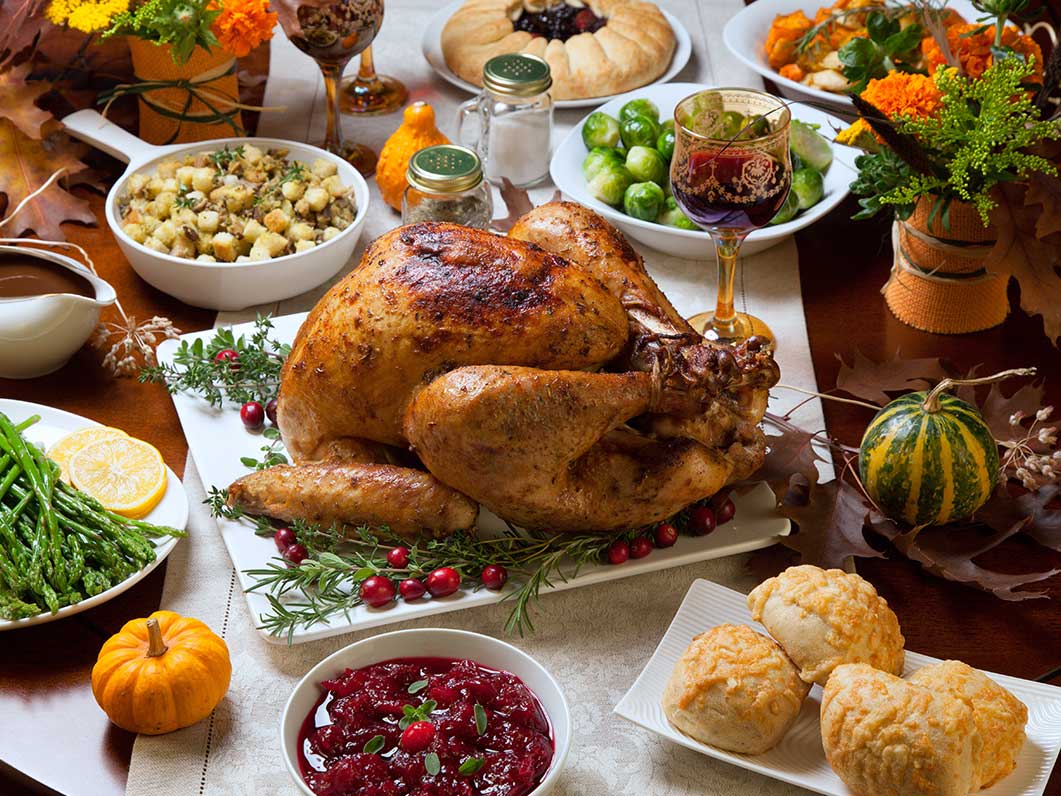The USDA recently released a four-page reminder for consumers –
after two years of COVID pandemic precautions and nearly a year of post-COVID wariness – to wash their hands with soap and water for 20 seconds “before, during and after handling food” during Thanksgiving meal preparations.
Somewhere someone must have forgotten.
And the release also advises against stuffing your turkey. That’s what it said.
The release, entitled “Stay Food Safe this Thanksgiving Holiday,” came out Nov. 7 and said, “Keep your stomach full of turkey and free from foodborne illness this Thanksgiving holiday. The U.S. Department of Agriculture (USDA) reminds us all that it’s important to remember the steps to food safety during America’s biggest meal.”
Sandra Eskin, USDA Deputy Under Secretary, was quoted: “While the four steps to food safety — clean, separate, cook and chill — are important every day and at every meal, they are particularly significant on Thanksgiving. There will likely be many guests and many delicious dishes at your holiday table, but you don’t want to invite any foodborne pathogens. Follow those four steps — in particular, remember to use a food thermometer — and your Thanksgiving dinner will be a safe one.”
Tips include:
“Handwashing is the first step to avoiding foodborne illness. Wash your hands for at least 20 seconds with soap and water before, during, and after handling food. In a recent study, 97 percent of participants in a USDA test kitchen failed to wash their hands properly. Make sure to follow these handwashing steps:
- Wet your hands with clean, running water.
- Lather your fingers with soap.
- Scrub soapy hands and fingers thoroughly for at least 20 seconds. Rinse your hands under clean, running water.
- Dry hands off with a clean towel or air dry them.
Clean and sanitize any surfaces that have touched raw turkey and its juices and will later touch food such as kitchen counters, sinks, stoves, tabletops, etc.”
The USDA also warns against cross-contamination, “the spread of bacteria from raw meat and poultry onto ready-to-eat food, surfaces, and utensils. One way to avoid this is by using separate cutting boards — one for raw meat and poultry, and another for fruits and vegetables.”
The release said a recent USDA study “found that sinks are the most contaminated areas of the kitchen. USDA recommends against washing your raw poultry due to the risk of splashing bacteria throughout your kitchen. Clean and sanitize any areas that will come into contact with the turkey before and after cooking.”
Also it warns against thawing a turkey in hot water or leaving it on the countertop. “There are three ways to safely thaw a turkey: in the refrigerator, in cold water and in the microwave,” the release said, going on to describe each.
“It’s safe to cook a completely frozen turkey; however, it will take at least 50 percent longer to fully cook,” it said. “Your turkey is safe to eat once it reaches an internal temperature of 165 F.”
The agency “recommends against stuffing your turkey since this often leads to bacteria growth. However, if you plan to stuff your turkey, follow these steps:
- Prepare the wet and dry ingredients for the stuffing separately from each other and refrigerate until ready to use. Mix wet and dry ingredients just before filling the bird’s cavity.
- Do not stuff whole poultry and leave in the refrigerator before cooking.
- Stuff the turkey loosely — about 3/4 cup of stuffing per pound.
- Immediately place the stuffed, raw turkey in an oven set no lower than 325 F.
- A stuffed turkey will take longer to cook. Once it has finished cooking, place a food thermometer in the center of the stuffing to ensure it has reached a safe internal temperature of 165 F.
- Let the cooked turkey stand 20 minutes before removing the stuffing.”
Other tips include refrigerating “all perishable foods sitting out at room temperature within two hours of being cooked, or one hour if the temperature is 90 F or above.”
Another tip is to store leftovers “in small shallow containers and put them in the refrigerator. Thanksgiving leftovers are safe to eat up to four days in the refrigerator. In the freezer, leftovers are safely frozen indefinitely but will keep best quality from two to six months.”
We’re stuffing our turkey.



